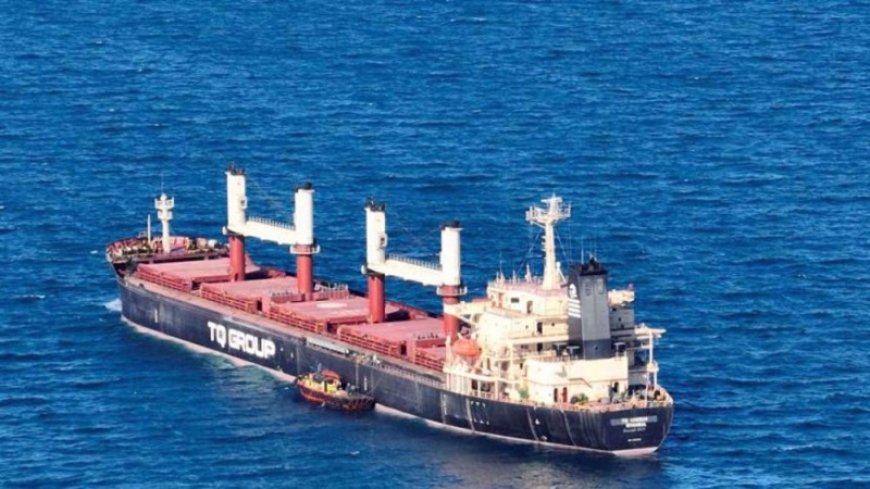Russia says all ships heading to Ukraine are considered potential arms carriers and part of the war
Russia says all ships heading to Ukraine are considered potential arms carriers and part of the war

Russia has warned that it is understood that all ships bound for Ukraine may be carrying weapons and military equipment and are thus part of the current war in the former Soviet republic. In a statement Wednesday, Russia's Defense Ministry said that as of Thursday, it will consider all ships bound for Ukraine potentially transporting weapons for Kiev and that "the flag countries of these ships will be considered parties to the Ukraine conflict." "In connection with the termination of the Black Sea Initiative and the end of the Maritime Humanitarian Corridor, as of 00:00 Moscow time on July 20, 2023 (21:00 GMT on Wednesday), all ships calling at Ukrainian ports in Black Sea waters will be considered as potential carriers of military cargo," the ministry added, without saying what measures it might take towards such ships.
Russia has not renewed the Grain Agreement, which allowed the export of Ukrainian grain. The last time the agreement was renewed was on May 18, and Russia agreed to an extension for another 60 days at that time. However, on Monday Moscow announced its withdrawal from the deal, which was linked to a separate agreement to facilitate the supply of Russian food and fertilizers. According to Moscow, there have been no simplifications under this agreement so far. The Kremlin initially threatened to withdraw from the agreement if its concerns were not allayed. The treaty is officially known as the Black Sea Grains Initiative. Brokered by Turkey and the United Nations on July 22, 2022, it has since enabled three Ukrainian ports to export around 32.9 million tons of grain and other food products to the world, more than half of them to developing countries, according to the Joint Coordination Center in Istanbul.
The ministry also said southeastern and northwestern parts of the Black Sea's international waters are temporarily unsafe for shipping, without naming the affected parts of the sea. "Accordingly, the countries of such ships are considered to be involved in the Ukraine conflict on the side of the Kiev regime. In addition, a number of sea areas in the north-western and south-eastern parts of the international waters of the Black Sea have been temporarily declared hazardous to navigation. Relevant information alerts on the withdrawal of seafarers' safety guarantees have been issued in accordance with the established procedure," the statement continued. The development comes as Ukrainian officials claimed that an overnight attack by Russian drones and missiles on Odessa on Wednesday allegedly targeted grain terminals and other critical infrastructure Ukraine needs to ship food around the world. Odessa, the third largest city in Ukraine, is one of the most important ports for grain exports in the former Soviet republic.
Russia's foreign ministry earlier said that despite UN efforts to extend the deal, obstacles to Russian food and fertilizer exports remain. “Only after receiving concrete results, and not after promises and assurances, will Russia be ready to consider restoring the agreement. At the same time, Kyiv has informed the United Nations that it is establishing an alternative route for its grain exports via Romania, one of the neighboring Black Sea states. "The goal is to facilitate the unblocking of international shipping in the northwestern part of the Black Sea," Vasyl Shkurakov, Ukraine's acting minister of municipalities, territories and infrastructure development, said in a letter to the International Maritime Organization (IMO). Ukraine, a major exporter of corn, barley, sunflower oil and rapeseed oil, used to export most of its crops through its main ports on the Black and Azov Seas. Since the beginning of the war, however, she was forced to export by train or via her small ports on the Danube. So far, more than 30 million tons of grain and agricultural products have been exported under the initiative. Any disruption or halt to Ukraine's grain flow could exacerbate a food crisis in the poorest countries and send world prices skyrocketing. The ending of the unprecedented war deal is preventing famine-stricken parts of the world from receiving vital crops.













































